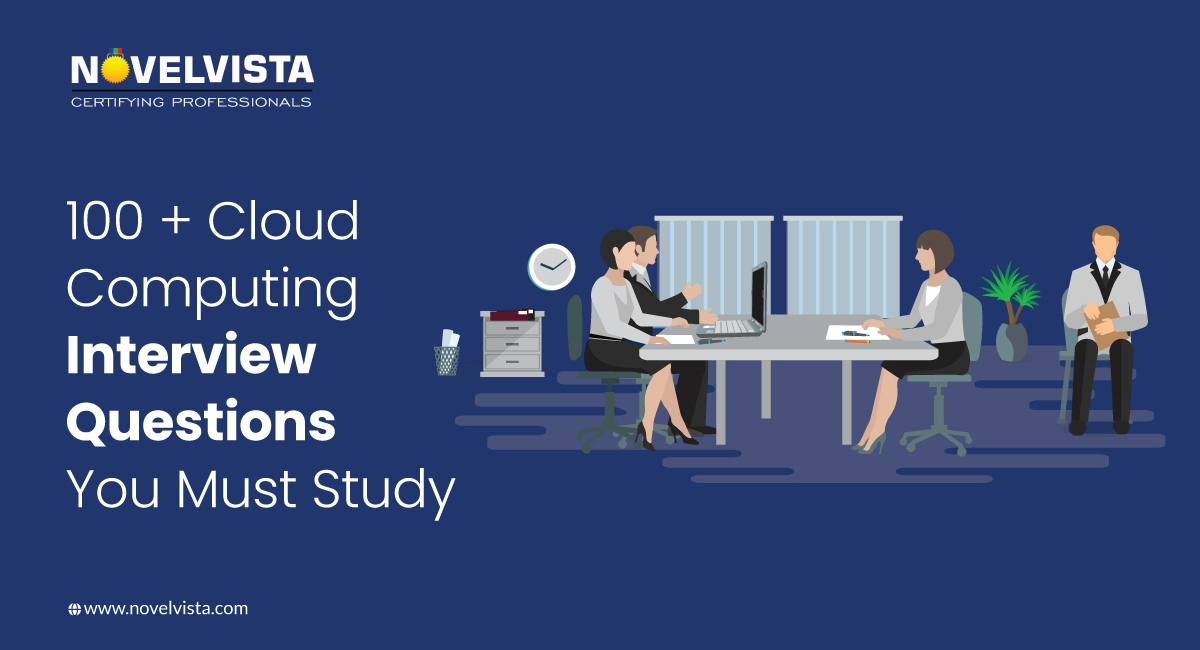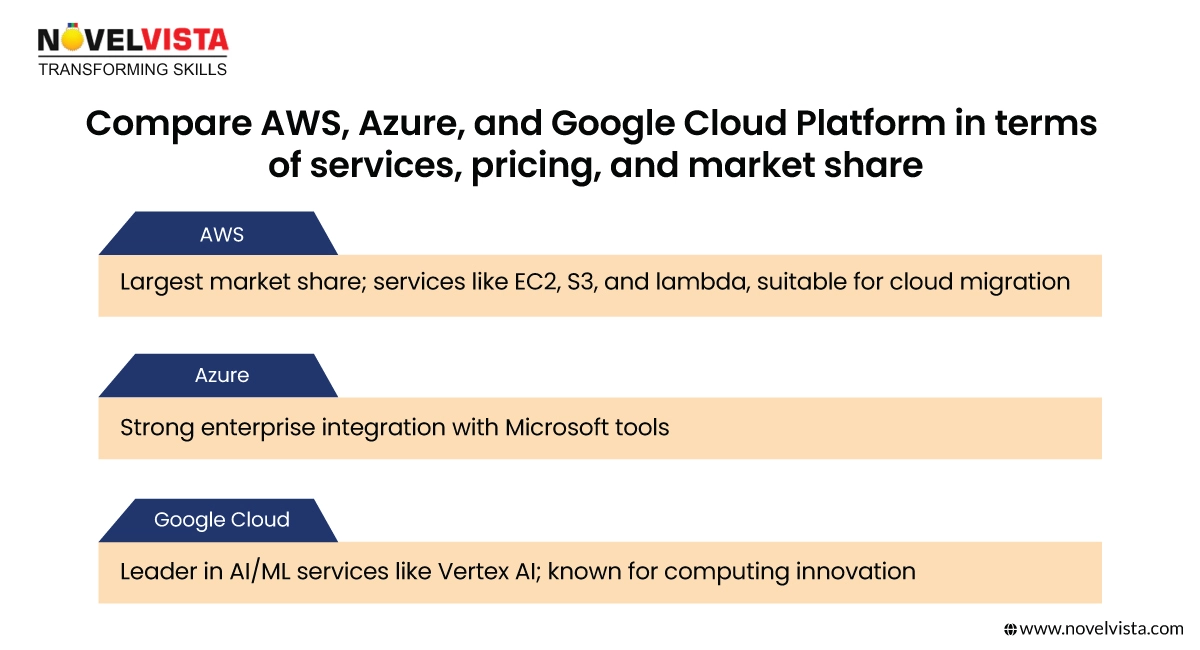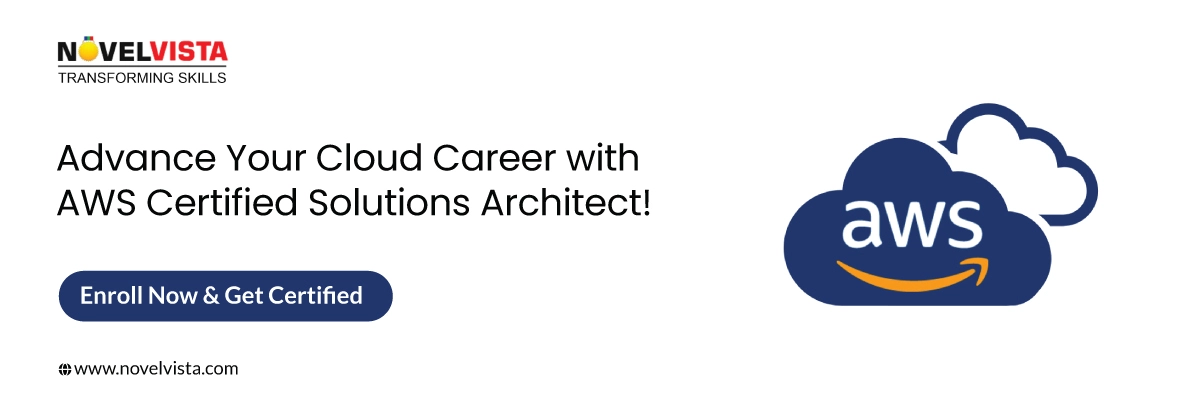Enroll Now and Get Upto 30% Off
* Your personal details are for internal use only and will remain confidential.

Last updated 01/04/2025

Can you name a single organization that is not using cloud computing?
You can’t. Because there isn’t any.
Although the concept of cloud computing has been vaguely on board since 70’s, the journey started full-fledged with the invention of Amazon Web Services in 2006. Cloud computing provides agility for the organization, helps in cost reduction, monitors the performance of an entire organization. With the help of cloud computing, productivity gets increased as well when multiple users can work on the same data simultaneously, rather than waiting for it to be saved and emailed. Time may be saved as information does not need to be re-entered when fields are matched, nor do users need to install application software upgrades to their computer. Is there any reason for any business in the world for not benefitting themselves from this? Not a chance!
A career in cloud computing is pretty promising. But, you’ll need to go through a bunch of basic questions at the interview table to grab one. What they might be you wonder? Let’s check these 20 mostly asked cloud computing questions for the clarification!
Cloud computing is referred to the on-demand availability of computer system resources, especially data storage and computing power, without direct active management by the user. The term is generally used to describe data centers available to many users over the Internet. Large clouds, predominant today, often have functions distributed over multiple locations from central servers. If the connection to the user is relatively close, it may be designated an edge server.
The benefits of cloud computing are:
A cloud is a collection of the network, hardware, services, storage, and interfaces that helps in delivering computing as a service. Cloud has three users :
Some of the different data types in cloud computing are mentioned below:
The different layers that are used by cloud architecture are:
The 2 platforms mainly used for large scale cloud computing are:
Cloud Computing has 3 different layers in the hierarchy:
Infrastructure as a service (IaaS): Provides cloud infrastructure in the basis of hardware like memory, processor, speed etc.
Platform as a service (PaaS): Provides a cloud application platform for the cloud developer.
Software as a service (SaaS):: Provides users with cloud applications directly without installing anything on the system.
Software As a Service (SaaS) is a vital layer of cloud computing that facilitates users to save and create their documents on the cloud.
Platform as a Service or PaaS is a layer in a cloud architecture that is built on the infrastructure model and provide resources like computers, storage, and network. PaaS provides complete virtualization of the infrastructure layer and makes it look like a single server and invisible for the outside world.
Cloud computing provides on-demand access to virtualized IT resources which is known as on-demand functionality. It can be used by the subscriber by a shared pool to provide configurable resources. This shared pool contains networks, servers, storage, applications, and services.
Apache Hadoop and MapReduce platforms can be used for large scale cloud computing.
The different deployment model in cloud computing are:
The different deployment model in cloud computing are:
Private clouds secure strategic operations and other reasons. It is a complete platform that is fully functional and can be owned, operated and restricted by that particular organization only. In the present day, most of the organizations have moved to private clouds due to security concerns. Virtual private cloud is being used that operate by a hosting company.
Public clouds are open for users to use and deploy that focuses on a few layers like cloud application, an infrastructure providing, and providing platform markets.
Hybrid clouds are a combination of public clouds and private clouds. Most of the people are preferring Hybrid Clouds over both public and private clouds because it applies most robust approach to implement cloud architecture. It includes the functionalities and features of both the worlds. It allows organizations to create their own cloud and allow them to give control over to someone else as well.
Mobile computing’s concept is based on cloud computing. Cloud computing provides users the required data. On the other hand, in mobile computing, applications run on the remote server and give the user access for storage and management.
Scalability is a characteristic of cloud computing that handles the increasing workload by increasing the amount of resource capacity. With the use of scalability, the architecture provides on-demand resources if the requirement is being raised by the traffic. On the other hand, Elasticity is a characteristic that provides the concept of commissioning and decommissioning of a large amount of resource capacity. It is measured by the speed through which the resources are coming on demand and the usage of the resources.
Cloud computing maintains the authorization of the application services. That’s the reason it is used in identity management.
It also provides allows the users to control the access of another user who is entering into the cloud environment.
Utility computing is a plug-in under a particular organization’s management that decides the type of services to be deployed from the cloud. It allows users to pay only for what they use.
It is an acronym stands for Elastic Utility Computing Architecture For Linking Your Program To Useful Systems. EUCALYPTUS is an open-source software infrastructure in cloud computing for the implementation of clusters in the cloud computing platform. It creates a public, private, and hybrid clouds and allows a user to create his own data center into a private cloud and use its functionalities to many other organizations.
Cloud computing disaster recovery consists of creating redundant systems and data backup, as well as failover facilities. Cloud providers operate several data centers in different geographical locations to give access to client data in case of any failures. Some of the major strategies for business continuity in cloud computing include pilot light, warm standby, and multi-site deployments.
Auto-scaling brings down costs by adjusting resources based on traffic patterns so as to optimize performance. Load balancing distributes incoming traffic among the servers so that no particular server is overloaded, hence improving application reliability. All these practices help with the efficient and cost-effective use of cloud infrastructure.
IaaS (Infrastructure as a Service): Virtualized computing resources. Example: Amazon EC2(IaaS supports cloud infrastructure and cloud migration).
PaaS (Platform as a Service): Software platform for application development. Example: Google App Engine(It is used for building cloud applications).
SaaS (Software as a Service): Applications that are made available in the cloud. Example: Salesforce CRM(Great for using the benefit of cloud computing).
Public Cloud:A cloud environment where resources are shared among different organizations and service providers such as AWS host this environment. Hosting a web application may be an example of a Public Cloud.
Private Cloud: Infrastructure dedicated for use by one organization. Some of the examples include - Banking systems.
Hybrid Cloud:A mixture of private and public clouds. Some examples of hybrid clouds include Healthcare Services.
Community Cloud:An infrastructure that is shared between various organizations. An example could be the Government Agencies.
Thus can be seen that these cloud deployment models are tailored to serve their needs, ranging from scalability to data security.
IAM (Identity Access Management) allows access control to cloud resources using authentication, authorization, and monitoring; it essentially encourages the working of least-privilege access, where resources are safeguarded using various IAM-like AWS tools); this becomes crucial for cloud security and compliance in verticals like finance and healthcare.
Data encryption safeguards sensitive data by converting it to unreadable code. Thus, cloud service providers would implement encryption for data at rest and in transit, using algorithms like AES-256 along with secure key management. For cloud security and regulatory compliance, this is extremely critical.

AWS: Largest market share; services like EC2, S3, and lambda, suitable for cloud migration.
Azure: Strong enterprise integration with Microsoft tools.
Google Cloud: Leader in AI/ML services like Vertex AI; known for computing innovation.
An example is Netflix which migrated to AWS to achieve scalability and global content delivery. Key challenges included rearchitecting applications; benefits were improved performance, reduced cost, and increased viewer experience. This demonstrates how cloud computing trends such as serverless computing can be realized.
A common trap includes a simple lack of hands-on practice, misinterpreting the service models, or ignoring some of the agreed-upon security principles. To avoid these traps, practice on one of the cloud platforms read some of the documentation, and play with some cloud storage services: AWS S3, Google Cloud Storage, and Azure Blob Storage.
These include deploying across regions, IAM and encryption of data, monitoring costs with cloud-native tools, designed to be scalable and fault-tolerant, and, of course, keeping current with cloud computing trends and practices.

Cloud computing mastery involves knowledge of disaster recovery planning, auto-scaling, load balancing, service models (IaaS, PaaS, SaaS), deployment models, IAM, encryption, and vendor comparison. Best practices like regional redundancy, secure access controls, and cost-effective scalability need to be implemented by organizations. Examples such as Netflix's move to AWS demonstrate the revolutionary effect of cloud adoption. To remain competitive, professionals can opt for industry-standard certifications such as the Novelvista to upgrade their skills. The Cloud Computing Foundation Certification Course also offers basic knowledge to create secure, scalable, and cost-effective cloud infrastructure and steer clear of cloud interview pitfalls.
Topic Related PostNovelVista Learning Solutions is a professionally managed training organization with specialization in certification courses. The core management team consists of highly qualified professionals with vast industry experience. NovelVista is an Accredited Training Organization (ATO) to conduct all levels of ITIL Courses. We also conduct training on DevOps, AWS Solution Architect associate, Prince2, MSP, CSM, Cloud Computing, Apache Hadoop, Six Sigma, ISO 20000/27000 & Agile Methodologies.
* Your personal details are for internal use only and will remain confidential.